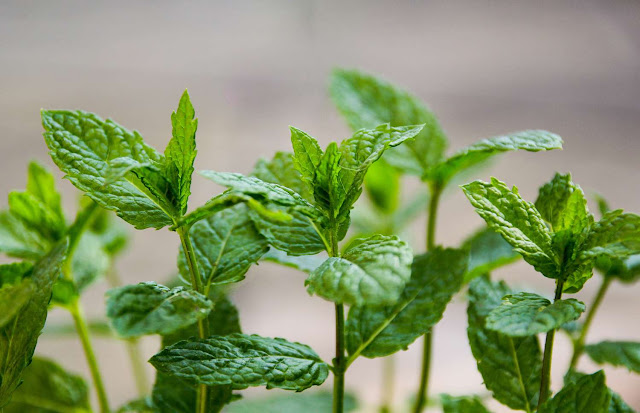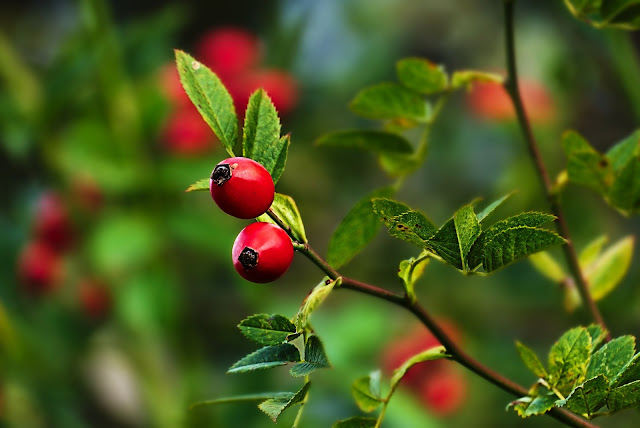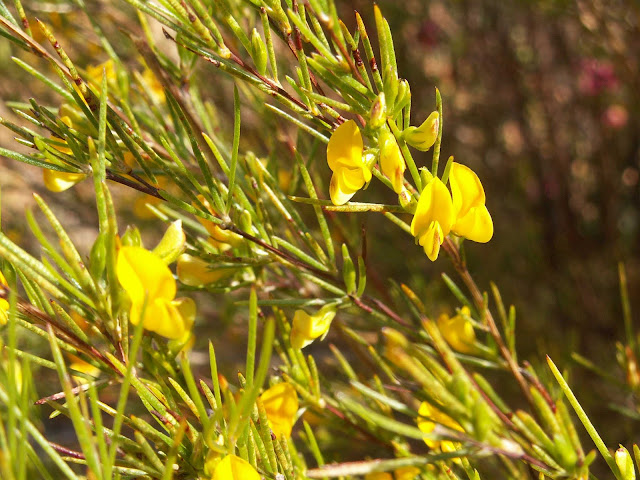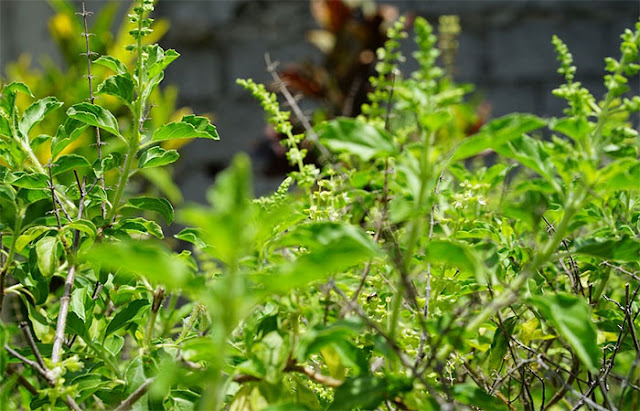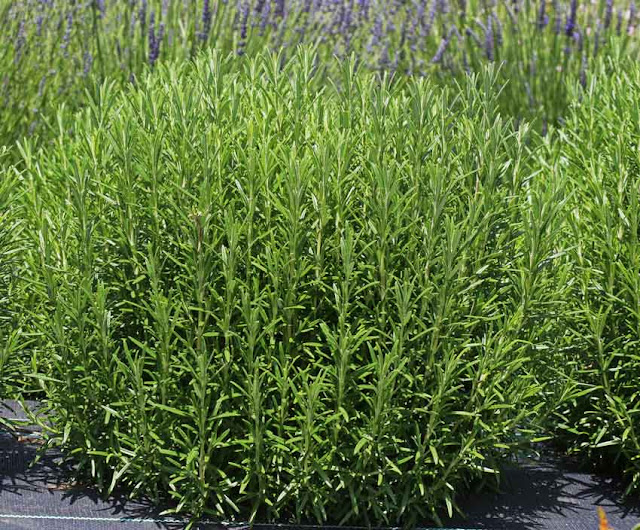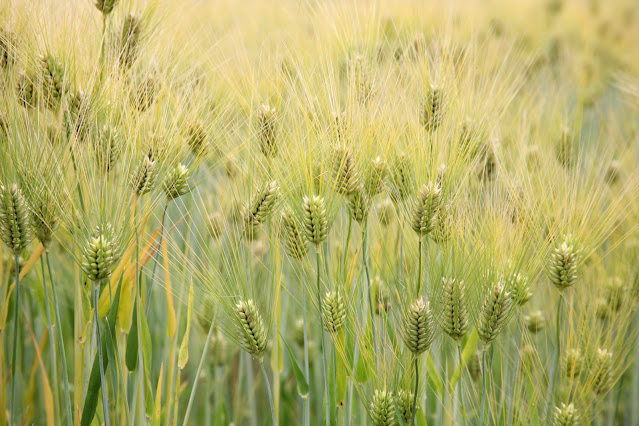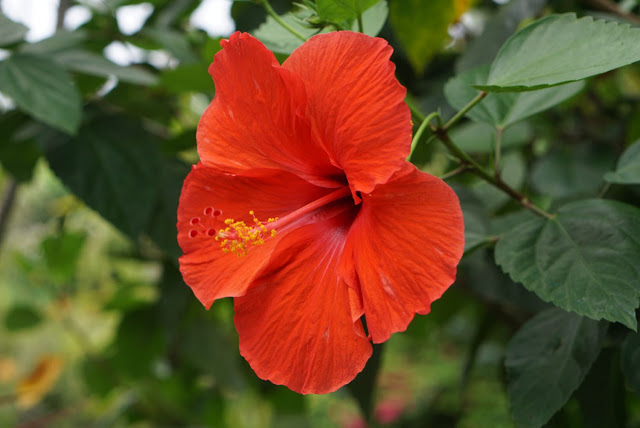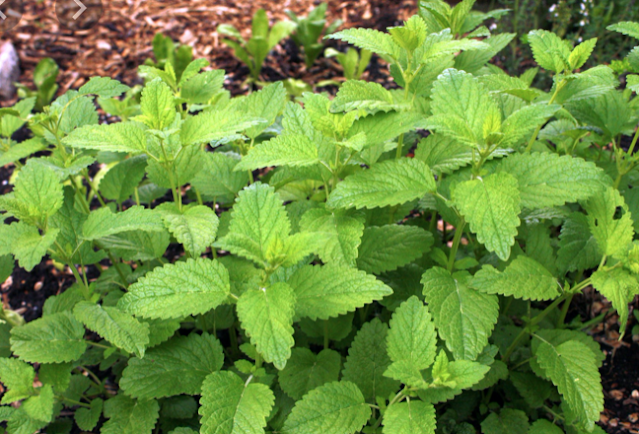Discover
the power of medicinal plants for herbal tea. From tulsi to Lemon grass,
explore natural remedies for health and wellness.
Medicinal
plants for herbal tea encompass a diverse array of botanical wonders celebrated
for their therapeutic properties and natural healing benefits. From the
soothing effects of passion flower to the potential cancer-fighting properties
of Jiaogulan, each herb offers a unique blend of health-promoting compounds.
Kava provides gentle relaxation, while lapacho bark boasts anti-inflammatory
and immune-boosting qualities.
Chamomile:
Chamomile, a dainty flowering plant, has been
cherished for centuries for its calming properties and medicinal benefits. Its
delicate white and yellow flowers are brewed into a soothing tea renowned for
its ability to induce relaxation and promote sleep. Beyond its gentle aroma and
pleasing taste, chamomile tea offers a plethora of potential health benefits.
One
of the most well-known benefits of this medicinal
plants
tea is its anti-inflammatory properties. Consuming chamomile tea may help
reduce inflammation in the body, alleviating symptoms associated with
conditions like arthritis and inflammatory bowel diseases. Additionally,
chamomile is often recommended for soothing stomach discomfort, such as
indigestion, bloating, and cramps. Its natural compounds can help relax the
muscles of the digestive tract, easing discomfort and promoting healthy
digestion.
Moreover, chamomile tea is valued for its ability to improve sleep quality. Drinking a warm cup of this medicinal plants tea before bedtime may help calm the mind and body, facilitating better sleep and reducing insomnia symptoms. Its soothing effects on the nervous system can induce feelings of calmness and relaxation, making it an ideal bedtime beverage for those struggling with sleep disturbances.
Peppermint:
Peppermint,
with its vibrant green leaves and invigorating aroma, is celebrated worldwide
for its refreshing qualities and medicinal properties. The leaves of the
peppermint plant are infused to create a refreshing herbal tea with a mildly
sweet and minty flavor.
One
of the primary benefits of this medicinal plants tea is its
ability to aid digestion. The menthol present in peppermint helps relax the
muscles of the digestive tract, alleviating symptoms of indigestion, bloating,
and gas. Additionally, peppermint tea may help soothe an upset stomach and
relieve symptoms of nausea and vomiting.
Peppermint
tea is also valued for its stress-reducing properties. The refreshing aroma of
peppermint can have a calming effect on the mind, helping to reduce stress and
anxiety levels. Moreover, the act of sipping on a warm cup of peppermint tea
can be comforting and relaxing, providing a moment of tranquility in a busy
day.
Furthermore, this medicinal plants tea is beneficial for oral hygiene. Its natural antimicrobial properties can help combat bad breath and prevent the growth of bacteria in the mouth, promoting overall oral health. Additionally, peppermint tea may help relieve symptoms associated with the common cold, such as congestion and sore throat, thanks to its soothing and decongestant properties.
Rosehips:
Rosehips, the fruit of the rose plant, are
prized for their vibrant color and potent nutritional content. These small,
round berries are packed with vitamin C, antioxidants, and other beneficial
compounds, making them a valuable addition to herbal tea blends.
One
of the key benefits of this medicinal plants tea is its high
vitamin C content. Vitamin C is essential for immune function, collagen
production, and skin health. Consuming rosehip tea may help boost the immune
system, protect against infections, and promote healthy skin.
Moreover,
rosehips are rich in antioxidants, which help neutralize harmful free radicals
in the body and reduce oxidative stress. Antioxidants play a crucial role in
preventing cellular damage and reducing the risk of chronic diseases such as
heart disease, cancer, and diabetes.
Additionally, this medicinal plants tea may aid in weight management and promote healthy aging. The fiber and polyphenols found in rosehips can help regulate appetite, improve digestion, and support weight loss efforts. Furthermore, the antioxidants in rosehips may help protect against age-related cognitive decline and maintain brain health.
Rooibos:
Rooibos
tea, native to South Africa, has gained popularity worldwide for its unique
flavor and numerous health benefits. Made from the leaves of the rooibos plant,
this caffeine-free herbal tea is prized for its earthy and slightly sweet
taste.
One
of the primary benefits of this medicinal plants tea is its high
antioxidant content. Rooibos tea contains a variety of antioxidants, including
polyphenols and flavonoids, which help protect cells from damage caused by free
radicals. Antioxidants play a crucial role in reducing inflammation, supporting
immune function, and preventing chronic diseases.
Moreover,
rooibos tea may help lower cholesterol levels and promote heart health. Studies
suggest that regular consumption of this medicinal
plants
tea may help reduce LDL cholesterol levels and improve heart health markers
such as blood pressure and triglycerides. Additionally, rooibos tea may help
improve blood sugar control and reduce the risk of type 2 diabetes.
Furthermore, this medicinal plants tea has been traditionally used to soothe digestive issues and promote gastrointestinal health. Its anti-inflammatory properties can help relieve symptoms of indigestion, bloating, and abdominal pain. Additionally, rooibos tea may aid in relieving colic in infants, making it a popular choice for parents seeking natural remedies for their little ones.
Ginger:
Ginger,
a flavorful and aromatic root, has long been prized for its medicinal
properties and culinary uses. Ginger tea, made from fresh or dried ginger root,
offers a spicy and invigorating flavor profile along with a host of potential
health benefits.
One
of the primary benefits of this medicinal plants tea is its
ability to alleviate nausea and settle upset stomachs. Ginger contains
bioactive compounds such as gingerol and shogaol, which have anti-nausea and
anti-inflammatory properties. Drinking ginger tea may help ease symptoms of
motion sickness, morning sickness during pregnancy, and chemotherapy-induced
nausea.
Moreover,
this medicinal plants tea may offer neuroprotective and cardioprotective effects.
Research suggests that the antioxidants and anti-inflammatory compounds in
ginger may help protect against age-related cognitive decline and reduce the
risk of neurodegenerative diseases such as Alzheimer's and Parkinson's.
Additionally, ginger may help improve cardiovascular health by reducing
cholesterol levels, improving blood circulation, and lowering blood pressure.
Furthermore, this medicinal plants tea may aid in blood sugar regulation and offer potential anti-cancer effects. Studies suggest that ginger may help lower blood sugar levels and improve insulin sensitivity in individuals with type 2 diabetes. Additionally, ginger contains bioactive compounds that may inhibit the growth and spread of cancer cells, making it a promising adjunctive therapy for cancer prevention and treatment.
Cinnamon
Cinnamon,
often associated with cozy winter treats and aromatic baked goods, isn't just a
flavorful spice—it's also packed with health benefits when brewed into a tea.
This beloved spice is renowned for its delightful aroma and distinct flavor
profile, but its medicinal properties extend far beyond its culinary appeal.
Studies
have shown that this medicinal plants possesses
potent antioxidant properties, which are beneficial for combating oxidative
stress and reducing the risk of chronic diseases. Antioxidants help neutralize
harmful free radicals in the body, which can damage cells and contribute to
various health issues. Additionally, cinnamon is rich in compounds like
cinnamaldehyde, which exhibit anti-inflammatory effects. These properties can
aid in reducing inflammation in the body, which is linked to conditions such as
heart disease and arthritis.
One
of the most notable health benefits of this medicinal
plants
tea is its potential to lower blood pressure and support heart health. Research
indicates that regular consumption of cinnamon may help lower blood pressure
levels, which is crucial for cardiovascular health. By promoting healthy blood
circulation and reducing the risk of hypertension, cinnamon tea can contribute
to maintaining optimal heart function and reducing the risk of heart disease.
Moreover, this medicinal plants tea may also have beneficial effects on blood sugar levels and insulin sensitivity, making it a valuable addition to the diet for individuals with diabetes or those at risk of developing the condition. Some studies suggest that cinnamon can improve insulin sensitivity and enhance the body's ability to regulate blood sugar levels, which is essential for managing diabetes and preventing complications associated with the disease.
Lemongrass
Lemongrass
is a versatile herb that is not only used in cooking but also valued for its
medicinal properties when brewed into a soothing medicinal
plants
herbal tea. This fragrant herb imparts a refreshing citrusy flavor to tea
blends and offers a host of therapeutic benefits for overall health and
well-being.
Research
suggests that this medicinal plants tea possesses
analgesic properties, which can help alleviate pain and discomfort associated
with various conditions such as headaches, muscle cramps, and menstrual cramps.
Additionally, lemongrass tea has been shown to have calming effects on the
nervous system, making it beneficial for reducing anxiety and promoting
relaxation.
Furthermore,
this medicinal plants tea may help lower blood pressure levels and serve as an
antioxidant due to its rich content of bioactive compounds such as citral,
geraniol, and luteolin. These compounds exert protective effects against
oxidative damage and inflammation in the body, which are important for
maintaining overall health and reducing the risk of chronic diseases.
Moreover, lemongrass possesses antibacterial and anti-inflammatory properties, which can support immune function and aid in combating infections. By inhibiting the growth of harmful bacteria and reducing inflammation, lemongrass tea may promote a healthy immune response and contribute to overall well-being.
Tulsi
Tulsi,
also known as Holy Basil, is revered in traditional medicine for its remarkable
adaptogenic properties and holistic health benefits. This sacred herb has been
used for centuries in Ayurveda, the ancient Indian system of medicine, for its
ability to promote balance and resilience in the body.
As
an adaptogen, tulsi helps the body adapt to stress and maintain homeostasis, or
internal balance. This makes it particularly beneficial for managing
stress-related ailments and supporting overall health and vitality. Research
has highlighted tulsi's diverse array of therapeutic properties, including
anti-inflammatory, antioxidant, antidiabetic, anticancer, antimicrobial, and
radioprotective effects.
This medicinal plants tea is prized for its ability to promote relaxation, reduce
stress and anxiety, and enhance mental clarity and focus. It can be especially
beneficial for individuals dealing with chronic stress, anxiety disorders, or
adrenal fatigue. Additionally, tulsi tea may help regulate blood sugar levels,
improve insulin sensitivity, and support cardiovascular health.
Furthermore, tulsi's antioxidant properties help protect against oxidative damage caused by free radicals, which can contribute to premature aging, chronic inflammation, and various diseases. By neutralizing free radicals and reducing inflammation, this medicinal plants tea may help prevent oxidative stress-related conditions and promote longevity.
Rosemary
Rosemary,
a fragrant herb commonly used in culinary applications, also boasts medicinal
properties when brewed into a flavorful herbal tea. This aromatic herb has been
prized for centuries for its culinary and therapeutic benefits, making it a
popular choice for both cooking and herbal remedies.
One
of the key health benefits of this medicinal plants tea is its
potential to support cognitive function and brain health. Research suggests
that rosemary contains compounds that may help improve memory, concentration,
and mental clarity. These cognitive-enhancing effects make rosemary tea a
valuable addition to the diet, particularly for individuals seeking to maintain
optimal brain function and prevent age-related cognitive decline.
Moreover,
this medicinal plants tea may have mood-lifting and anxiety-reducing effects,
making it a soothing beverage for promoting relaxation and emotional
well-being. Some studies have indicated that rosemary may help alleviate
symptoms of anxiety and depression, possibly due to its ability to modulate
neurotransmitter activity in the brain.
Additionally,
rosemary tea may offer benefits for digestive health, as it contains compounds
that can help stimulate digestion, reduce bloating, and alleviate
gastrointestinal discomfort. By promoting healthy digestion and supporting gut
health, rosemary tea may contribute to overall well-being and enhance nutrient
absorption.
Furthermore, this medicinal plants is rich in antioxidants, which help protect cells from oxidative damage and reduce inflammation in the body. These antioxidant properties may confer various health benefits, including immune support, cardiovascular protection, and anti-aging effects.
Olive Leaf
Olive
leaf tea, derived from the leaves of the olive tree, is a lesser-known herbal
tea that offers a myriad of health benefits. While olives and olive oil are
widely recognized for their culinary and nutritional value, the leaves of the
olive tree contain potent bioactive compounds that contribute to its
therapeutic properties.
One
of the notable health benefits of this medicinal plants leaf tea is its
potential to promote cardiovascular health. Research suggests that olive leaf
extract may help lower blood pressure levels, improve cholesterol levels, and
reduce the risk of heart disease. These cardiovascular benefits are attributed
to the presence of compounds like oleuropein, which exhibit vasodilatory and
antioxidant properties.
Moreover,
olive leaf tea may possess anticancer properties, as studies have demonstrated
its ability to inhibit the growth and proliferation of cancer cells. The
bioactive compounds found in olive leaves, such as oleuropein and
hydroxytyrosol, exert anticancer effects by inducing apoptosis (programmed cell
death) and suppressing tumor growth.
Additionally,
this medicinal plants tea may help regulate blood sugar levels and improve
insulin sensitivity, making it beneficial for individuals with diabetes or
those at risk of developing the condition. Some research suggests that olive
leaf extract can enhance glucose metabolism and reduce insulin resistance,
which are important factors in managing diabetes and preventing complications
associated with the disease.
Furthermore,
olive leaf tea exhibits antimicrobial properties, which can help combat
infections caused by bacteria, viruses, and fungi. The bioactive compounds
found in olive leaves possess broad-spectrum antimicrobial activity, making
them effective against various pathogens responsible for common infections.
Moreover,
olive leaf tea may support immune function and enhance the body's natural
defenses against infections and illnesses. By stimulating the immune system and
reducing inflammation, olive leaf tea may promote overall health and well-being.
Barley
Barley is a versatile grain that's commonly used in medicinal plants herbal tea blends due to its rich flavor and health benefits. In herbal teas, barley adds a unique taste and depth while also providing digestive support and aiding in weight management. Its inclusion in herbal concoctions makes them not only delicious but also therapeutic, offering relief for digestive issues and assisting in maintaining a healthy weight.
Licorice
Licorice
root is renowned for its natural sweetness and medicinal properties, making it
a valuable addition to herbal teas. The sweet taste of licorice enhances the
flavor of herbal blends while its medicinal qualities help alleviate stomach
discomfort and soothe coughs. this medicinal plants tea is a
soothing elixir, offering comfort and relief to those experiencing digestive
issues or respiratory ailments.
Eucalyptus
Eucalyptus
is celebrated for its powerful antibacterial and antiseptic properties, making
it a crucial ingredient in herbal teas aimed at respiratory health. Its
inclusion in herbal blends provides relief for various respiratory conditions,
from common colds to more severe infections like pneumonia. Eucalyptus-infused
herbal teas offer a comforting remedy, helping to clear airways and promote
rejuvenation.
Iceland Moss
Iceland
moss is highly regarded for its therapeutic benefits, particularly in soothing
sore throats and dry coughs. Adding Iceland moss to herbal tea formulations
provides instant relief for throat discomfort and can also stimulate appetite.
Its presence in medicinal
plants
herbal teas adds another layer of utility, making them not only soothing but
also beneficial for digestive health.
Ginkgo
Ginkgo
is esteemed for its potential cognitive benefits, making it a prominent
ingredient in medicinal plants herbal teas
focused on brain health and memory enhancement. Despite the need for further
research, ginkgo remains popular for its reputed ability to support cognitive
function. Incorporating ginkgo into herbal tea blends offers hope and support
for cognitive well-being, making it a valuable addition to herbal remedies.
Ashwagandha:
Known
for its adaptogenic properties, Ashwagandha is a valuable herb used in herbal
tea blends. Adaptogens are substances that help the body cope with stress, and
Ashwagandha is renowned for its ability to alleviate stress and anxiety.
Moreover, research suggests its potential in enhancing cognitive function,
protecting brain and heart health, and strengthening muscles. Including this medicinal
plants
in herbal teas not only imparts a unique flavor but also offers a holistic
approach to wellness.
Sage:
Sage tea has a rich tradition in herbal
medicine, celebrated for its analgesic and antimicrobial properties. It has
historically been used to alleviate pain and fight infections. Recent studies
have highlighted its potential in addressing a wide range of health issues,
from depression and dementia to obesity, diabetes, and even serious conditions
like heart disease and cancer. Incorporating sage into herbal tea blends not
only adds depth of flavor but also provides a potent dose of therapeutic
compounds.
Raspberry Leaf:
Raspberry
leaf tea holds a special place, particularly among expectant mothers seeking
natural ways to facilitate labor. While its efficacy in aiding childbirth is
widely acknowledged, further research is needed to fully understand its
benefits and safety during pregnancy. Nonetheless, its traditional use and
anecdotal evidence support its inclusion in medicinal plants herbal teas
designed for maternal wellness.
Valerian Root:
Valerian
root is a well-known remedy for insomnia, making it a staple in herbal
medicine. Whether consumed as a tea infusion or in pill form, it stands as one
of the most potent botanicals for addressing sleep disorders. Valerian root's
sedative properties make it an essential component of this medicinal
plants
herbal tea blends aimed at promoting relaxation and improving sleep quality.
Anise Seed:
Traditionally
recognized for its respiratory and digestive benefits, anise seed adds a sweet
flavor profile to herbal teas. This medicinal plants is often used
in culinary applications to enhance taste and aroma. With its respiratory and
digestive benefits, anise seed contributes not only to the flavor but also to
the therapeutic properties of herbal tea blends.
Elderberry
Flower:
Elderflower
tea is valued for its potent antibacterial and antiviral properties, offering
relief from common ailments like influenza and bronchitis. The flavonoids
present in this medicinal plants elderberry flowers and berries contribute to its
therapeutic efficacy, making it a popular choice for immune support and overall
wellness.
Linden Flower:
Linden
flower tea is renowned for its soothing properties, particularly in alleviating
symptoms of the common cold, fever, and cough. Its rich mucilage content
provides a comforting texture, making it ideal for soothing throat discomfort.
Linden flower's calming effects make it a sought-after ingredient in medicinal
plants
herbal tea blends designed for relaxation and respiratory health.
Turmeric:
Turmeric,
renowned for its culinary and medicinal versatility, finds its way into herbal
tea blends, offering potential benefits for heart health and skin wellness.
Curcumin, the active compound in turmeric, possesses anti-inflammatory and
antioxidant properties, making it a valuable addition to medicinal
plants
herbal teas for promoting overall health and vitality.
Moringa:
Dubbed
a "superfood," moringa offers a plethora of health benefits, ranging
from managing heart diseases and diabetes to combating cancer and fatty liver
conditions. Its inclusion in medicinal plants teas provides a
nutritional boost, enriching wellness regimens with essential vitamins,
minerals, and antioxidants.
Lavender:
Lavender
is esteemed for its calming and mood-enhancing properties, making it a
cherished component of herbal tea blends tailored for relaxation and anxiety
relief. Its harmonious blend with other calming herbs like chamomile creates a
soothing beverage that promotes emotional well-being and stress management.
Pine Needle:
The invigorating scent of pine forests comes
alive in pine needle herbal tea, offering more than just a sensory delight.
Traditionally believed to elevate mood and potentially act as an antidepressant,
this tea holds promise beyond its aromatic allure. This medicinal
plants
tea enthusiasts often attribute its uplifting effects to its refreshing
essence, reminiscent of a stroll through nature's embrace.
Echinacea:
Among
the arsenal of herbal remedies, echinacea herbal tea stands out for its
potential in combating common cold symptoms and alleviating feelings of
depression. Revered for its immune-boosting properties, echinacea tea has long
been consumed to ward off winter ailments. Additionally, its purported ability
to lift spirits makes it a popular choice for those seeking solace in a cup.
Honeybush:
Originating from the African continent, honeybush herbal tea shares similarities with its cousin, rooibos tea, in both flavor and benefits. Renowned for its sweet and soothing qualities, this medicinal plants honeybush tea offers respite to coughs and promotes relaxation after a long day. Its gentle nature makes it a comforting companion during moments of stress or restlessness.
Hibiscus Flower:
Vibrant
and enchanting, hibiscus flower tea captivates tea enthusiasts worldwide.
Beyond its visual appeal, studies suggest that this floral infusion may play a
role in lowering blood pressure and cholesterol levels. Whether enjoyed hot or
cold, this medicinal plants hibiscus tea offers a refreshing escape with potential
health benefits tucked within its ruby-red hues.
Osmanthus:
In the realm of herbal teas, osmanthus tea
emerges as a delicate yet potent contender. Admired for its immune-boosting
properties and potential allergy-fighting abilities, this tea transcends mere
refreshment. With its subtle peachy notes and floral fragrance, this medicinal
plants
osmanthus tea entices tea lovers seeking a harmonious blend of taste and
wellness.
Chrysanthemum:
Steeped
in tradition, chrysanthemum tea holds a revered status in Chinese culture.
Celebrated for its antioxidant properties, this floral infusion offers more
than just a sensory experience—it provides potential benefits for overall
well-being. From soothing the mind to regulating blood pressure, chrysanthemum
tea embodies the essence of holistic health and vitality.
Rose:
Embodying
the essence of floral elegance, this medicinal plants rose herbal tea
delights the senses while offering potential health benefits. Rich in
antioxidants, this fragrant infusion may aid in reducing oxidative stress and
promoting general wellness. As petals unfurl in a warm cup, a journey of
rejuvenation begins, enveloping both body and spirit in floral serenity.
Jasmine:
Infused
with the exotic allure of jasmine blossoms, this medicinal
plants
jasmine herbal tea offers a sensory escape with potential therapeutic effects.
Traditionally used to address various ailments, this aromatic brew tantalizes
taste buds while offering a moment of respite. Though its benefits are
acknowledged in traditional medicine, further research is needed to unlock its
full therapeutic potential.
Yarrow:
A
beloved remedy in Europe and North America, this medicinal
plants
yarrow herbal tea boasts a myriad of healing properties. From soothing upset
stomachs to alleviating menstrual discomfort, this herbal infusion serves as a
natural remedy for various ailments. With each sip, yarrow tea invites harmony
and balance into one's wellness journey.
Stinging Nettle:
Despite
its humble origins as a pesky weed, this medicinal
plants
stinging nettle emerges as a powerhouse of health benefits. Nettle tea, brewed
from the leaves of this resilient plant, offers a wealth of nutrients and
potential therapeutic effects. From mitigating the risk of chronic diseases to
positively impacting mental health, stinging nettle tea embodies the resilience
and vitality of nature's bounty.
Dandelion:
Dandelion is more than just a pesky weed; it's a powerhouse of nutrients and potential health benefits. Traditionally, dandelion root has been used in herbal medicine for its diuretic properties, promoting the elimination of toxins from the body. Research suggests that this medicinal plants dandelion root may also possess anti-inflammatory and antioxidant properties, making it a promising candidate for combating certain types of cancers. Additionally, dandelion root tea may support liver health by promoting bile production and aiding digestion. Its potential to enhance immune function and support skin health further adds to its allure as a medicinal herb.
Cranberry:
Cranberry
tea is renowned for its ability to prevent and alleviate urinary tract
infections (UTIs). This medicinal plants contain
compounds called proanthocyanidins, which prevent bacteria from adhering to the
urinary tract walls, thus reducing the risk of infection. Regular consumption
of cranberry tea may also promote urinary tract health by flushing out harmful
bacteria. Moreover, cranberry tea is rich in antioxidants, which help
neutralize harmful free radicals in the body, contributing to overall health
and well-being.
St. John’s Wort:
St. John’s Wort has long been used as a
natural remedy for depression and mood disorders. Its active compounds,
including hypericin and hyperforin, are believed to modulate neurotransmitter
levels in the brain, particularly serotonin, dopamine, and norepinephrine,
which play crucial roles in regulating mood. Research suggests that this medicinal
plants
may be as effective as conventional antidepressants in treating mild to
moderate depression, with fewer side effects. However, its efficacy varies
among individuals, and it may interact with certain medications, so caution is
advised when using it as a remedy for depression.
Yerba:
Yerba
mate tea is a beloved beverage in South America, prized for its unique
combination of caffeine and antioxidants. Its caffeine content provides a
natural energy boost, similar to coffee, but with fewer jitters and crashes.
Yerba mate also contains polyphenols and saponins, which have antioxidant and
anti-inflammatory properties, protecting cells from damage and reducing
inflammation in the body. Studies suggest that this medicinal
plants
may aid in weight management by increasing metabolism and promoting fat
oxidation. Additionally, its potential benefits for diabetes management,
digestive health, and mood enhancement make it a versatile addition to herbal
tea blends.
Guava leaf:
Guava
leaf tea is valued for its therapeutic properties, particularly in managing
diabetes and promoting cardiovascular health. Compounds found in guava leaves,
such as flavonoids and tannins, help regulate blood sugar levels by inhibiting
the absorption of sugar in the body and improving insulin sensitivity.
Furthermore, this medicinal plants tea may support
heart health by lowering blood pressure, reducing cholesterol levels, and
preventing the oxidation of LDL cholesterol, which contributes to the formation
of plaque in the arteries. Additionally, guava leaf tea exhibits antimicrobial
properties, making it effective against bacterial and parasitic infections.
Gotu kola:
Gotu kola, also known as Centella asiatica, is
revered for its adaptogenic properties and potential health benefits. In
traditional medicine systems like Ayurveda, gotu kola is prized for its ability
to support cognitive function and alleviate symptoms of anxiety and depression.
Its active compounds, including triterpenoids and flavonoids, promote the
production of neurotransmitters like serotonin and dopamine, which regulate
mood and reduce stress. This medicinal plants also enhances
circulation, improves wound healing, and protects against age-related cognitive
decline. Additionally, its anti-inflammatory and antioxidant properties make it
beneficial for skin health, promoting collagen production and reducing signs of
aging.
Marshmallow root:
Marshmallow
root tea is valued for its soothing properties, particularly for alleviating
respiratory and digestive discomfort. The mucilage content in marshmallow root
forms a protective layer over mucous membranes, reducing irritation and
inflammation in the throat and stomach. This makes marshmallow root tea
effective for relieving symptoms of coughs, sore throats, and digestive issues
like heartburn and indigestion. Additionally, this medicinal
plants
tea may support gut health by promoting the growth of beneficial bacteria and
soothing gastrointestinal inflammation.
Thyme:
Thyme tea offers a plethora of health
benefits, thanks to its rich array of bioactive compounds, including thymol,
carvacrol, and flavonoids. Thyme possesses antimicrobial properties, making it
effective against respiratory infections like bronchitis and sore throats. This medicinal
plants
acts as a natural expectorant, helping to expel mucus from the lungs and
relieve congestion. Thyme tea also supports cardiovascular health by improving
blood circulation, lowering blood pressure, and reducing cholesterol levels.
Furthermore, its antioxidant properties protect cells from oxidative damage,
supporting overall health and immune function.
Calendula:
Calendula
tea is prized for its soothing and healing properties, making it a popular
remedy for various skin conditions. Calendula contains compounds like
flavonoids and saponins, which possess anti-inflammatory and antimicrobial
properties, reducing inflammation and preventing infections. Topically, this medicinal
plants
tea can be used to soothe minor cuts, burns, and insect bites, promoting wound
healing and reducing scarring. When consumed internally, calendula tea supports
digestive health by reducing inflammation in the gastrointestinal tract and
promoting healthy digestion. Additionally, its calming effects make it
beneficial for relieving menstrual cramps and promoting relaxation.
Kuding tea:
Kuding tea, renowned for its bitter taste,
offers a wide range of health benefits, particularly for skin health and weight
management. Studies suggest that kuding tea contains polyphenols and other
bioactive compounds that protect against UVB-induced skin damage, reducing the
risk of sunburn and premature aging. Additionally, this medicinal
plants
may aid in weight management by increasing metabolism, promoting fat oxidation,
and reducing appetite. Its bitter taste also stimulates digestion and may help
alleviate digestive discomfort. Furthermore, kuding tea exhibits antioxidant
and anti-inflammatory properties, supporting overall health and well-being.
Jiaogulan:
Jiaogulan herbal tea is celebrated for its
potential health benefits, offering a holistic approach to well-being. Studies
suggest it may have positive effects on various health concerns, including
cancer treatment. People drink this medicinal plants tea to support
overall health and vitality. It's believed to promote wellness in many ways,
making it a popular choice among herbal tea enthusiasts seeking natural
remedies.
Passion Flower:
Passion
flower herbal tea is cherished for its calming properties, serving as a natural
solution for those struggling with sleeplessness or restlessness. It acts as a
gentle sedative, helping people relax and drift into a peaceful sleep. Many
individuals turn to this medicinal plants tea as a
soothing remedy for winding down after a long day, promoting relaxation and
improving sleep quality without the need for prescription medications.
Kava:
Kava
herbal tea offers a mild yet effective way to combat insomnia and anxiety. It
functions as a gentle relaxant, easing tension and promoting a sense of
calmness. However, it's essential to exercise caution, as long-term or
excessive consumption of this medicinal plants tea may lead to
liver toxicity, especially when combined with alcohol. Despite this risk, many
people find kava tea to be a valuable tool for managing stress and improving
sleep quality.
Lapacho Bark:
Lapacho bark herbal tea is valued for its unique blend of health benefits derived from the lapacho tree. Renowned for its anti-inflammatory properties and immune-boosting capabilities, this medicinal plants tea offers potential support for various health issues. Additionally, some research suggests it may have a role in cancer treatment, making it a sought-after remedy for those seeking natural alternatives.
Lemon Balm:
Lemon
balm herbal tea, derived from the Melissa plant, provides a refreshing infusion
with subtle citrus notes. Similar to mint teas, it offers a range of benefits,
including aiding digestion, promoting relaxation, and acting as a mild
diuretic. Its gentle yet effective properties make it a popular choice for
those seeking a natural way to support overall wellness. Whether enjoyed hot or
cold, this medicinal plants herbal tea offers a
delightful and beneficial beverage option for any time of day.
CHHATIWAN (ALSTONIA SCHOLARIS)
CHIRAITO (SWERTIA ANGUSTIFOLIA)
CHIRAITO (Swertia bimaculata )
CHIRAITO (Swertia multicaulis)
DATIWAN (ACHYRANTHES BIDENTATA )
DHASINGARE (Gaultheria fragrantissima)
DRONAPUSPA (LEUCAS CEPHALOTES)
GOBRESALLA / TALISPATRA (ABIES SPECTABILIS)
GUJARGANO (CISSAMPELOS PAREIRA)
INDRAJAU ( Holarrhena pubescens )
JAMANE MANDRO (MAHONIA NEPAULENSIS)
JATAMANSI (NARDOSTACHYS GRANDIFLORA)
KAKAD SINGHI (Pistacia chinensis)
KAKOLI ( Fritillaria cirrhosa)
KALO SHARIVA (CRYPTOLEPIS BUCHANANII)
KALO SHARIVA (ICHNOCARPUS FRUTESCENS)
KALO-BIKHA (ACONITUM LACINIATUM)
LAGHU PATRA (PODOPHYLLUM HEXANDRUM)
Medicinal Plants of Nepal! Preserving the Past, Healing the Future
NAGEBELI (LYCOPODIUM CLAVATUM)
PANCHAUNLE (Dactylorhiza hatagirea)
https://easyayurveds.com/shop/
https://easyayurveds.com/neem-capsule-price-in-easy-ayurved-nepal/
https://easyayurveds.com/ajwain-oil-carom-oil-for-pain-relief-relaxation-improved-blood-circulation-stress-reduction-mental-relaxation-and-relief-from-arthritis-100ml/
https://easyayurveds.com/amla-powder-gooseberry-powder-rich-in-vitamin-c-calcium-iron-amino-acids-for-immunity-metabolism-and-natural-blood-purify-amala-powder-100gm/
https://easyayurveds.com/brahmi-bati-price-in-nepal/
https://easyayurveds.com/confido-tablets-for-libido-testosteron-and-erectile-dysfunction/
https://easyayurveds.com/arjuna-chaal-powder-supports-heart-health-manages-cholesterol-level-promotes-healthy-metabolism-diabetes-weight-loss-terminalia-arjuna-100gm/
https://easyayurveds.com/ashokarishta-ayurvedic-syrup-for-women-relief-from-irregular-and-heavy-menstruation-and-hormonal-imbalance-with-ashoka-dhataki-by-dabar-450ml/
https://easyayurveds.com/ashwagandha-withania-somnifera-ayurvedic-herbal-supplement-promotes-vitality-and-strength-support-for-stress-ashwagandha-powder-100gm/
https://easyayurveds.com/ashwagandharishta-helps-boost-immunity-stress-buster-for-health-strength-wellness-naturally-enhances-fertility-libido-by-baidyanath-450ml/
https://easyayurveds.com/avipattikar-churna-gastric-churna-for-hyperacidityflatulence-bloating-nausea-heart-burn-and-digestion-ayurvedic-abhipattikar-churna-100gm/
https://easyayurveds.com/brahmi-brahmi-powder-for-brain-memory-good-sleep-low-stressand-depression-edible-drinking-eating-pure-hair-care-centella-asiatica-100gm/
https://easyayurveds.com/chyawanprash-with-yarshagumba/
https://easyayurveds.com/castor-oil-arandi-oil-price-in-nepal/
https://easyayurveds.com/yarshagumba-price-in-nepal/
https://easyayurveds.com/isabgol-bhusi-price-in-nepal/
https://easyayurveds.com/himcolin-gel-price-in-daraz-nepal/
https://easyayurveds.com/baidynath-shilajit-price-in-nepal/
https://easyayurveds.com/goksura-gokharu-powder-price-in-nepal/
https://easyayurveds.com/giloy-gurjo-gudduchi-powder-price-in-nepal/
https://easyayurveds.com/shilajit-capsule-price-in-nepal/
https://easyayurveds.com/dushmularishta-price-in-online-shopping-nepal/
https://easyayurveds.com/moringa-price-in-nepal/
https://easyayurveds.com/kaauso-price-in-nepal-mucuna/
https://easyayurveds.com/jethimadhu-price-in-nepal/
https://easyayurveds.com/jaiphal-oil-price-in-nepal/
https://easyayurveds.com/benefits-of-jamun-seed-powder-for-diabities-and-constipetion/
https://easyayurveds.com/liv52-price-in-nepal/
https://easyayurveds.com/shilajit-price-in-nepal/
https://easyayurveds.com/liv52-price-in-daraz-nepal/
https://easyayurveds.com/khadirarista-price-in-nepal/
https://easyayurveds.com/bramhi-oil-ghod-tapre-oil-for-brain-memory-good-sleep-low-stressand-depression-edible-drinking-eating-pure-hair-care-bacopa-monnieri-oil-100ml/
https://easyayurveds.com/amla-juice-gooseberry-juice-rich-in-vitamin-c-calcium-iron-amino-acids-for-immunity-metabolism-and-natural-blood-purify-amala-juice-with-aloe-vera-100g



